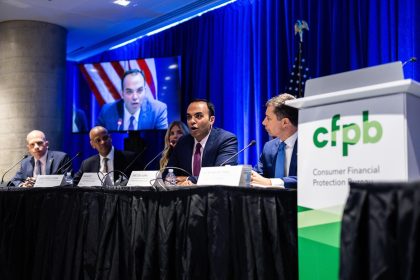Key takeaways
- Several banks charge an early account closure fee, usually between $5 and $50, if a customer closes their account within 90 to 180 days of opening it.
- Customers often choose to close their accounts early if they find better fees, higher annual percentage yields, or more convenient services at another bank.
- Many banks and credit unions don’t charge early account closure fees, but it’s important to research a bank’s policy before opening an account.
No one enjoys seeing pesky bank fees eat away at a savings or checking account balance, so it can pay to shop around for an account that doesn’t charge maintenance fees, out-of-network ATM fees or overdraft fees. Another fee charged by some banks is an early account closure fee.
Various banks and credit unions have policies of charging such a fee if a customer closes an account within a set amount of time after opening it. If you think for any reason you might need to close an account soon after establishing it, it’s a good idea to see if the bank will charge you a fee for doing that.
What is an early account closure fee?
An early account closure fee is a predetermined amount of money — usually between $5 and $50 — that the bank will charge you for closing your account soon after opening it. Of the banks that charge this fee, many will impose it upon customers who close their accounts within 90 days of opening. Other banks, however, require you to keep the account open for up to 180 days to avoid the fee.
You can find out whether a given bank charges an early account closure fee by looking at the bank’s fee schedule, which is often relatively easy to find when you’re on the bank’s website.
Early account closure fees at popular banks
Whether they’re big banks, online banks or community banks, many banks these days don’t charge fees for closing accounts early. However, there are some banks and credit unions that will assess such a fee to customers — often when the account is closed within 90 to 180 days of being opened.
| Bank | Account(s) | Early account closure fee | When fee is assessed |
|---|---|---|---|
| Alliant Credit Union | Various deposit accounts, where permissible by law | $10 | If account is closed within 90 days of opening |
| BMO Harris | Various checking and savings accounts | $50 | If account is closed within 90 days of opening |
| Huntington National Bank | Various deposit accounts | $20 | If account is closed within 180 days of opening |
| M&T Bank | Personal checking accounts (excludes MyWay Banking accounts) | $50 | If account is closed within 180 days of opening |
| Popular Direct | Various deposit accounts | $25 | If account is closed within 180 days of opening |
| Regions Bank | LifeGreen Checking | $25 | If account is closed within 180 days of opening |
| Security Service Federal Credit Union | Various deposit accounts | $5-$25 (depends on account) | If account is closed within 90 days of opening |
| Zions Bank | Various deposit accounts | $25 | If account is closed within 90 days of opening |
Why do banks charge early account closure fees?
A bank incurs administrative costs each time a customer opens an account, whether the account is opened online or by a customer visiting a branch. Banks might not recoup such costs if a customer closes their accounts within a short period of time.
Charging a fee to anyone who closes an account soon after opening it helps ensure customers will stick around, which often also means they’ll continue to make deposits and earn money for the bank.
Reasons people close bank accounts early
Some consumers decide to close a bank account soon after opening for various reasons:
- They find an account with another bank that pays lower fees or a high annual percentage yield (APY).
- Another bank has better branch availability or hours of operation.
- They want certain banking features or products not offered by their current bank.
- They move to a new area where their current bank doesn’t have branches.
- They’re opening a joint account and closing their sole-ownership account.
How to avoid early account closure fees
You can avoid early account closure fees by researching whether a bank charges such a fee before you open an account there. Be aware of how long you’ll need to keep the account open to avoid being charged the fee.
Plenty of banks don’t charge early account closure fees, so it’s worth finding such a bank if there’s a good chance you’ll be closing the account or switching banks in the near future.
Bottom line
Many people keep their bank accounts significantly longer than just a few months, yet it’s worth researching a bank’s early account closure policy if you feel you might be closing yours a lot sooner. While many banks and credit unions don’t charge such a fee, others may charge between $5 and $50 to customers who don’t hold onto their account for more than a few months.
– Bankrate’s Rene Bennett contributed to an updated version of this article.
Read the full article here

















